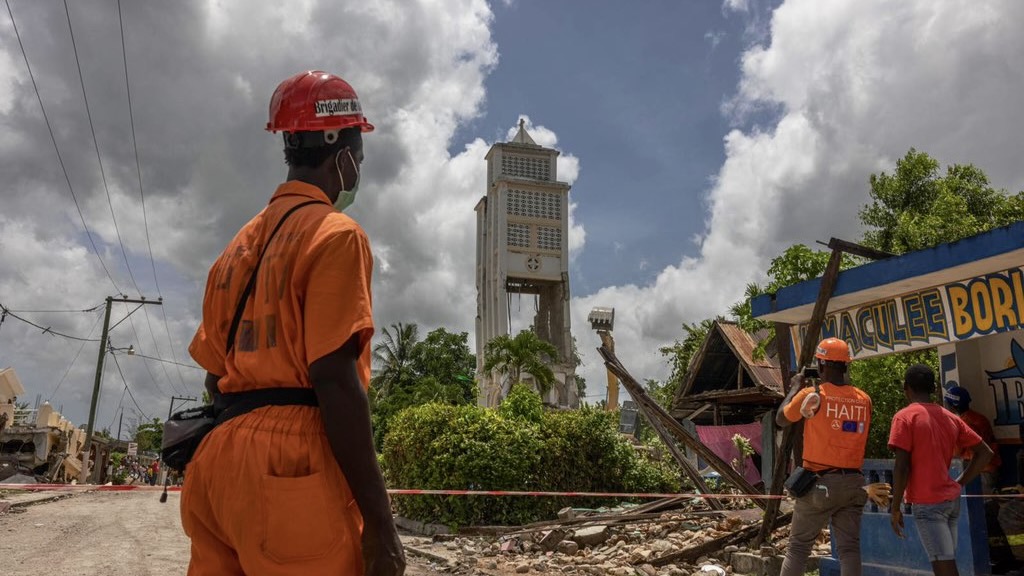The United Nations Children’s Fund (UNICEF), on September 2, warned that over half a million children in southwestern Haiti, hit by a devastating earthquake recently, are facing the risk of possible re-emergence of waterborne diseases.
UNICEF estimated that about 540,000 children, in the earthquake-stricken departments of Sud, Nippes and Grand’Anse, lack access to shelter, drinking water and hygiene facilities, and are threatened with acute respiratory infections, diarrhoeal diseases, cholera and malaria.
“The lives of thousands of children, adolescents and families affected by the earthquake are now at risk, just because they don’t have access to safe water, sanitation and hygiene. Cholera has not been reported in Haiti since February 2019, yet without urgent and firmer action the re-emergence of cholera and other waterborne diseases is a real threat that is increasing by the day,” said Bruno Maes, UNICEF representative in Haiti.
UNICEF pointed out that in the aftermath of the earthquake, nearly 60% of the population in the three departments do not have access to clean water.
Along with the National Directorate for Water and Sanitation (DINEPA) and civil society partners, UNICEF is working to improve access to water, sanitation and hygiene for affected families. The organization has provided about 73,600 people with drinking water through water tanker trucks. It has also distributed about 7,000 hygiene kits, which include products for the treatment and storage of water at home, soap, hand-washing devices and sanitary napkins.
However, the organization highlighted that there is a need to accelerate the efforts to assist the affected population. In addition to the 48.8 million USD appeal made for 2021, UNICEF has requested an additional humanitarian appeal for children of 73.3 million USD to scale up its relief assistance to earthquake-affected communities and internally displaced persons. So far, less than 1% of this required funding has been received.
On August 14, a powerful earthquake of magnitude 7.2 struck Haiti, causing massive economic and human losses, and affecting 1.2 million people. According to the last report by the Haitian Civil Protection Agency, over 2,200 people were killed, more than 12,200 were injured, and around 130,000 homes destroyed or damaged.
The earthquake has further exacerbated the humanitarian crisis in the Latin American and the Caribbean region’s poorest country. Since 2018, Haiti has been going through a delicate socio-political and economic crisis, which has aggravated after the assassination of its de-facto president Jovenel Moïse on July 7. It is struggling very hard with the COVID-19 pandemic, the high levels of food insecurity and malnutrition, fuel shortages, gang violence and displacements.
The memories are still fresh of the last cholera epidemic which ravaged the country just months after a devastating earthquake hit the country in 2010. Expert reports have confirmed that it was troops from the UN’s ‘peacekeeping mission’ the United Nations Stabilization Mission in Haiti (MINUSTAH) that introduced the disease in the country. The UN has also confirmed that the disease was introduced from one of their camps, but has yet to take legal responsibility. According to estimates by human rights organizations and progressive movements in the country, caused the death of 30,000 people.





